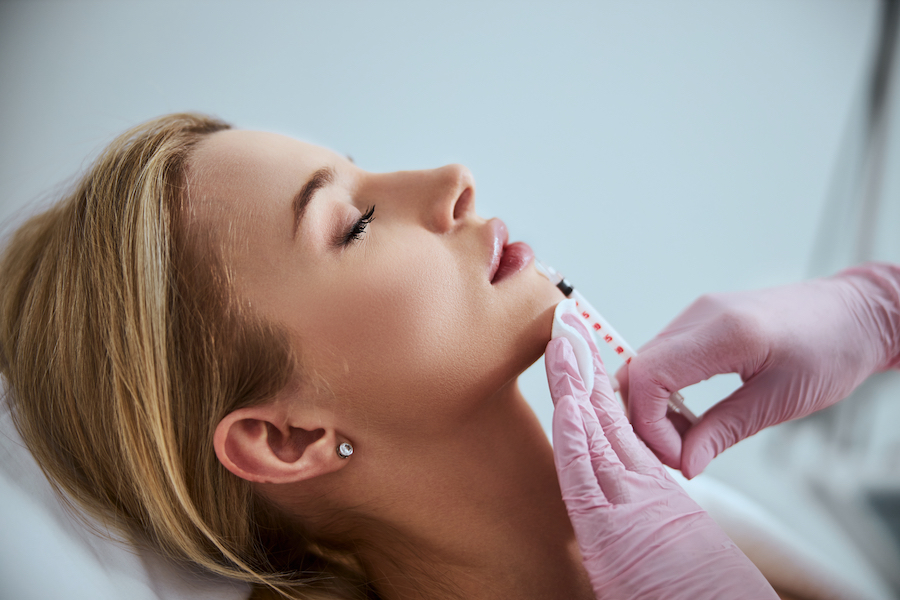One of the latest DIY beauty crazes is the “hyaluron pen” which has had its popularity boosted by social media. This so-called “needle-free filler” device is being promoted as a safe and effective treatment for individuals who want to believe they can achieve facial enhancements without having to have injections by a qualified medical professional.
WRONG! The hyaluron pen is not safe for use. The FDA issued their consumer warning alert in October 2021, explaining the dangers of the use of needle-free devices such as hyaluron pens for the injection of hyaluronic acid (HA) which is used in dermal fillers. The FDA’s statement warns consumers of “serious injuries and in some cases, permanent harm to the skin, lips, or eyes with the use of needle-free devices for injection of fillers.”1
The FDA further advises consumers, “not to undergo any filler procedure with needle-free devices to buy or use fillers sold directly to the public, and to NOT inject yourself or others with the lip and facial fillers using ANY device.”
Media outlets almost immediately got the word out to unsuspecting consumers. An article in Allure magazine sounded the alarm with the headline, “The Pen Isn’t Mightier Than the Syringe.”2 This Allure article and other beauty industry outlets warned readers about the dangers of DYI fillers with hyaluron pens.
Unfortunately, these hyaluron pens are still illegally being sold on Amazon and elsewhere despite the warnings of the FDA and the medical community. Comparable products (e.g., jet injectors) are regulated in the United States as Class II medical devices and according to the American Med Spa Association, “without an FDA marketing or premarket approval, a product manufacturer cannot legally sell or advertise a device for unapproved use; this marketing prohibition extends to purchasers of the product as well.”3 However, as the hyaluron pens are still new products, most state laws have not officially caught up with them as of this time.
Hyaluronic acid (HA) is the main ingredient used in FDA approved dermal fillers. HA is a naturally occurring type of sugar (polysaccharide) that is present in body tissues, such as in skin and cartilage. It is able to combine with water and swell when in gel form, causing a smoothing/filling effect.
Popular filler injectables, such as the JUVÉDERM® Collection of Dermal Fillers, the Restylane® Family of Products, and a variety of other facial fillers injected by medical practitioners who are trained and skilled in injection techniques are safe and effective. Remember, an at-home pen that doesn’t have a needle is unable to penetrate the skin and enter the dermis to work. Plus, consumers who have used these pens have suffered injuries including:
- Bleeding
- Bruising
- Infection/ Abscesses
- Lumps in the skin
- Skin discoloration
- Blockage of a blood vessel (which leads to tissue death)
- Scarring
- Other serious side effects
If you have tried one of these dermal filler pens, the FDA is asking consumers to report any problems experienced after using needle-free devices for injection of fillers to MedWatch, the FDA Safety Information and Adverse Event Reporting program.
The idiom, “if it sounds too good to be true, it probably isn’t” applies to this device4. Always check reliable sources before you waste your waste your money and time, or worse, suffer from an adverse reaction.
1FDA Safety Communication, Do Not Use Needle-Free Devices for Injection of Dermal Fillers, October 8, 2021
2Allure Magazine, Hyaluron Pens Risks and Side Effects, October 13, 2021
4https://idioms.thefreedictionary.com/if+something+sounds+too+good+to+be+true,+it+usually+is


